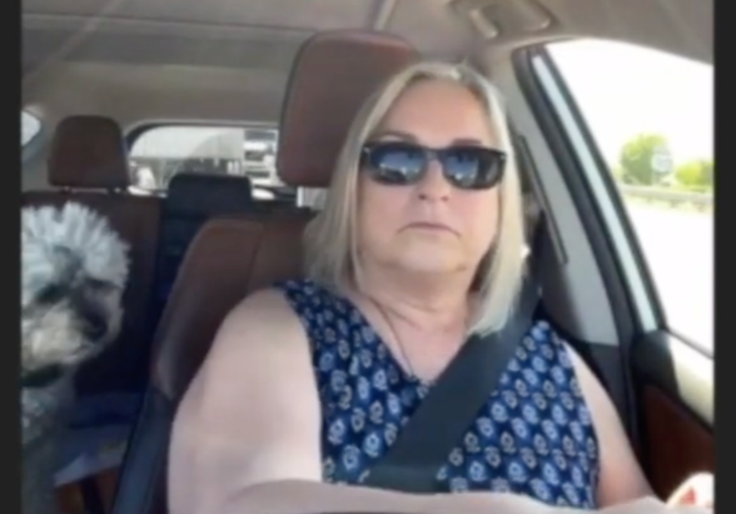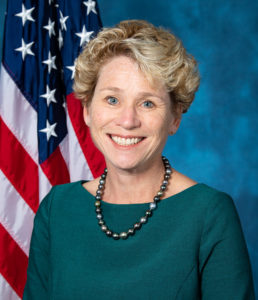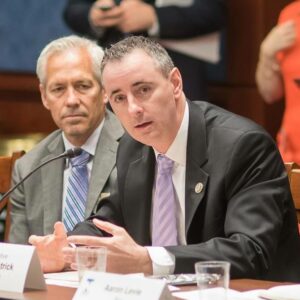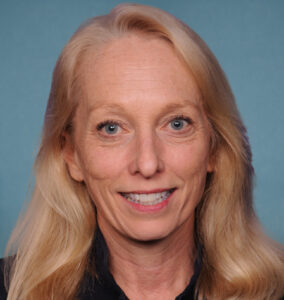Rep. Wild’s ‘Deplorables’ Moment: Carbon County Voters Need to be ‘Schooled’ Over Support for Trump

Embattled Democrat U.S. Rep. Susan Wild appeared to insult the intelligence of her own constituents with a comment about the need to “school” Carbon County voters. It was a misstep that quickly inspired comparisons to Hillary Clinton’s infamous “basket of deplorables” rhetoric believed to contribute to her loss to Donald Trump in 2016.
Wild, considered one of the most vulnerable Democrats in Congress, was participating in a virtual meet and greet on July 18 when she made problematic comments. “Carbon County has many attributes, but it is a county that – although it was once an Obama county – it since has become a Trump county,” Wild said.
“I’m not quite sure what was in their heads because the people of Carbon County are exactly the kind of people who should not be voting for a Donald Trump, but I guess I might have to school them on that a little bit.”
In 2020, Trump won Carbon County with more than 65 percent of the vote. This year’s redistricting put Carbon County in Wild’s district — making her race more competitive. Wild’s seat has already been labeled “lean Republican” by the non-partisan Cook Political Report.
Republican challenger Lisa Scheller was raised in Tamaqua — not far from the Carbon County line. She took issue with Wild’s remarks on Twitter.
“You are talking down on the type of people I grew up with,” Scheller said. “I am sorry the people of Carbon County can’t afford your liberal agenda that gave us record gas prices and inflation.”
In 2020, Scheller ran against Wild and lost by 3.8 percent. However, Scheller overperformed President Donald Trump by 1.1 points in 2020, according to Samantha Bullock, spokeswoman for the National Republican Committee.
“If Scheller mirrored Trump’s 2020 performance in Carbon County, she would have defeated Wild in 2020 due to her performance in Northampton and Lehigh Counties,” Bullock said.
Approximately 65,000 people live in Carbon County, according to the United States Census Bureau. Of adults older than 25, 17.9 percent have a bachelor’s degree and the county’s median income is $6,000 below the state’s average.
Wild’s snark about Carbon County voters did not sit well with Michael J. Sofranko, mayor of Jim Thorpe, Pa.
“I‘ve never defined myself by who I vote for, and I don’t think most of the voters in Carbon County do that,” Sofranko said. “They vote for who they think can do the best job at the time.”
The borough of Jim Thorpe, sometimes called the “Gateway to the Poconos,” is suffering the same challenges as the rest of Pennsylvania, Sofranko said.
“Most people travel out of Carbon County to work, so when you’re paying high gas prices, that hurts everyone in Carbon County,” said Sofranko.
Democrats have struggled to attract white, blue-collar voters in recent years. President Joe Biden, who Democrats nominated in part for his ability to win the support of those voters, has seen his approval among White men without college degrees drop to 20 percent.
Political pundits attribute it to the perception they look down on these voters. During the 2008 campaign, candidate Barack Obama was widely criticized for comments made at an upscale San Francisco fundraiser about the people living in “small towns in Pennsylvania.”
“The jobs have been gone now for 25 years and nothing’s replaced them,” Obama said. “And it’s not surprising then they get bitter, they cling to guns or religion or antipathy toward people who aren’t like them or anti-immigrant sentiment or anti-trade sentiment as a way to explain their frustrations.”
Eight years later, Hillary Clinton put Trump voters into “what I call the basket of deplorables. Right?” Clinton said. “The racist, sexist, homophobic, xenophobic, Islamaphobic—you name it.”
Wild’s comments in the same vein are unlikely to help her in November.
When it comes to the town of Jim Thorpe, Sofranki said the people are not defined by the red or blue of politics, but instead, by their faith, their family, and their friends.
“What I mean by faith is that, we’ve always been the kind of county where everyone might see darkness, but there’s a light at the end of the tunnel,” Sofranko said. “Keep working and you’ll get there. Family values are very strong in Carbon County — whatever that family may be, and they’ll always be there for each other. I don’t know where Susan Wild gets off saying she wants to ‘school’ Carbon County.”
Wild declined to respond to a request for comment.
Please follow DVJournal on social media: Twitter@DVJournal or Facebook.com/DelawareValleyJournal






